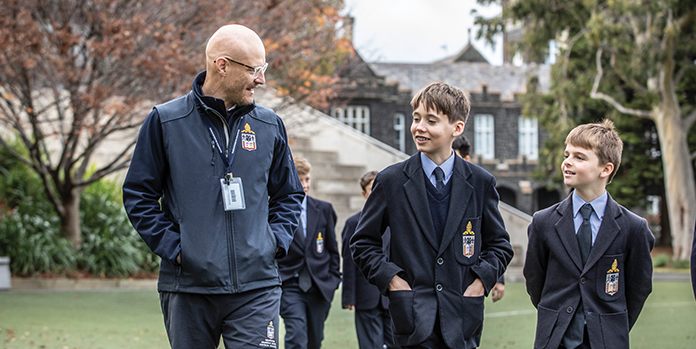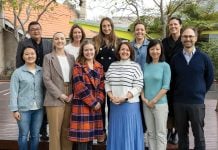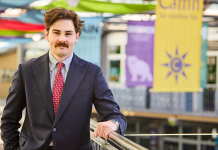At Wadhurst, a new Health (or personal development) program designed specifically for early adolescent boys is reshaping the way students navigate their formative years.
“Our program addresses both traditional topics together with a broad range of contemporary issues relevant to our students, helping them understand how to live properly and well in the 21st century,” explains Anna-Louise Simpson, Head of Wadhurst. “For example, when we cover topics like puberty and reproduction, we also delve into consent, personal safety and respect within these contexts.”
“Adolescence is descending on Australian boys earlier than ever,” says Anna-Louise. “There is clear evidence that hormonal and physical changes are happening sooner, and due to technology, young people are being exposed to unsavoury information at a much younger age.
“Unfortunately, the COVID-19 pandemic exacerbated this trend, with this particular age group spending long, largely unregulated periods online during some of their most crucial developmental years. This online exposure, coupled with missed opportunities for relationship-building activities like camps or playground socialisation, has blurred boundaries and appropriate behaviours for some.”
The program was largely devised by Tim Bratton, Wadhurst Coordinator of Health and Physical Education in consultation with key staff across the School. It begins with students exploring their own identity – understanding who they are, how to manage their emotions and how to build respectful relationships in person and online. Other important topics include positive mental health, substance abuse, and racism and inequality.
“The delivery of our program is evidence based, rather than opinion based,” explains Tim. “We try not to say you should do this, or you shouldn’t do that. It’s more about just giving students the knowledge and experience to make well-balanced, informed decisions, and in providing a safe space to ask questions, share ideas and be heard.”
“Sometimes it is about correcting misinformation or challenging preconceived ideas with the learning not always ending at the bell,” adds Tim. “At the end of most lessons, I ask students to write down three things they used to think, two things they now think and one thing they still wonder about, so they are prompted to continue to explore the topic themselves.”
Alongside scheduled classes, the program includes activities led by external experts such as the Reach Foundation, who specialise in helping young people have breakthrough conversations, and build emotional resilience and courage. Parents are also supported through workshops and information sessions – recent examples include a workshop on pornography, and one on vaping and alcohol, and a comprehensive bank of evidence-based resources is available to both students and parents.
“One of the most important benefits of the program is that it provides us with new ways to help identify boys who might be at risk,” says Tim. “Simple exercises like a five minute ‘mental health check-in’ walk at the start of a lesson, or a Reach Foundation exercise where students self-reflect on their level of connection at school, are incredibly helpful. It means that we can then support particular students with the help of our Counselling and Psychology Services team.”
The redesign of the Wadhurst health program reflects the school’s strategic commitment to provide a holistic education, and to prepare them for all that life presents in Senior School – and beyond.



